
The prime minister of New Zealand is the head of government of New Zealand. The incumbent prime minister, Christopher Luxon, leader of the New Zealand National Party, took office on 27 November 2023.
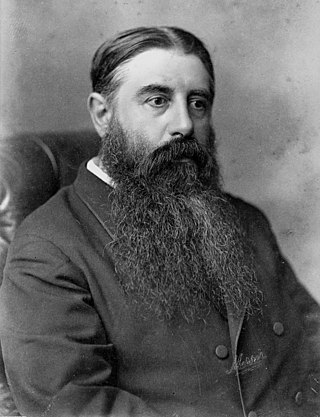
Sir Julius Vogel was the eighth premier of New Zealand. His administration is best remembered for the issuing of bonds to fund railway construction and other public works. He was the first Jewish prime minister of New Zealand. Historian Warwick R. Armstrong assesses Vogel's strengths and weaknesses:
Vogel's politics were like his nature, imaginative – and occasionally brilliant – but reckless and speculative. He was an excellent policymaker but he needed a strong leader to restrain him....Yet Vogel had vision. He saw New Zealand as a potential 'Britain of the South Seas', strong both in agriculture and in industry, and inhabited by a large and flourishing population.

Sir Harry Albert Atkinson served as the tenth premier of New Zealand on four separate occasions in the late 19th century, and was Colonial Treasurer for a total of ten years. He was responsible for guiding the country during a time of economic depression, and was known as a cautious and prudent manager of government finances, though distrusted for some policies such as his 1882 National Insurance (welfare) scheme and leasehold land schemes. He also participated in the formation of voluntary military units to fight in the New Zealand Wars, and was noted for his strong belief in the need for seizure of Māori land.

Sir Francis Dillon Bell was a New Zealand politician of the late 19th century. He served as New Zealand's third Minister of Finance, and later as its third Speaker of the House. The town of Bell Block near New Plymouth – on land Bell bought from the Puketapu iwi in 1849 – is named after him, as is Bell Street, Whanganui. Bell's son, Francis Henry Dillon Bell, became the first New Zealand born Prime Minister in 1925.

Sir David Monro was a New Zealand politician. He served as Speaker of the New Zealand House of Representatives from 1861 to 1870.
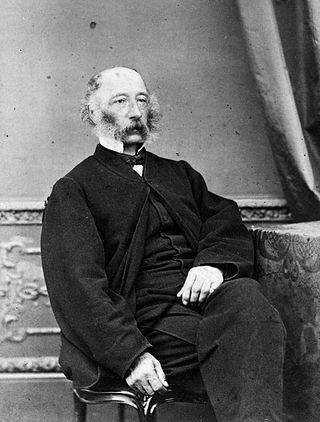
Sir William Fitzherbert was a New Zealand politician. He served as Minister of Finance, Speaker of the House of Representatives, and Speaker of the Legislative Council.
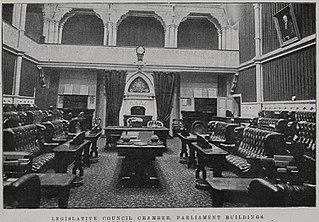
The New Zealand Legislative Council was the upper house of the General Assembly of New Zealand between 1853 and 1951. An earlier arrangement of legislative councils for the colony and provinces existed from 1841 when New Zealand became a colony; it was reconstituted as the upper house of a bicameral legislature when New Zealand became self-governing in 1852, which came into effect in the following year.

Sir John Hall was a New Zealand politician who served as the 12th premier of New Zealand from 1879 to 1882. He was born in Kingston upon Hull, England, the third son of George Hall, a captain in the navy. At the age of ten he was sent to school in Switzerland and his education continued in Paris and Hamburg. After returning to England and being employed by the Post Office, at the age of 27 he decided to emigrate. He was also Mayor of Christchurch.

Sir Frederick Whitaker was an English-born New Zealand politician who served twice as the premier of New Zealand and six times as Attorney-General.

Josiah Alfred Hanan, known to his colleagues as Joe Hanan, was a New Zealand politician, cabinet minister, and legislative councillor. He also served as Mayor of Invercargill, and as Chancellor of the University of New Zealand.

Women's suffrage was an important political issue in the late-nineteenth-century New Zealand. In early colonial New Zealand, as in European societies, women were excluded from any involvement in politics. Public opinion began to change in the latter half of the nineteenth century and after years of effort by women's suffrage campaigners, led by Kate Sheppard, New Zealand became the first nation in the world in which all women had the right to vote in parliamentary elections.

Sir George Maurice O’Rorke was a New Zealand politician, representing the Auckland seat of Onehunga, and later Manukau, and was Speaker of the House of Representatives. He was a committed provincialist and was the eighth Superintendent of the Auckland Province. Upon receiving his knighthood in 1880, he became known as Sir Maurice.

Sir Charles Ernest Statham was a New Zealand politician, and the ninth Speaker of the House of Representatives, from 1923 to 1935.
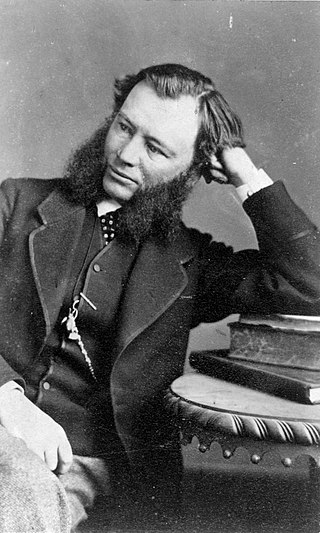
Sir Charles Christopher Bowen was a New Zealand politician.

Ewen William Alison was a conservative politician who sat in both the House of Representatives (1902–1908) and the Legislative Council (1918–1932) of New Zealand.
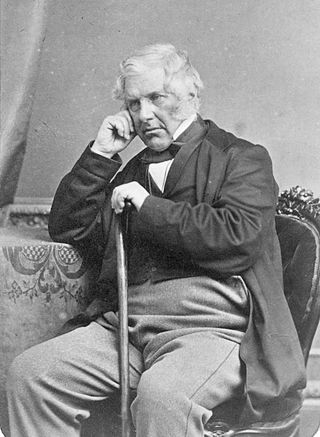
The Sewell Ministry was the first responsible government in New Zealand. Unlike previous executives, its members were held accountable to Parliament. This would form the basis for future governments in New Zealand.

The 11th New Zealand Parliament was a term of the Parliament of New Zealand.
The New Zealand Labour Party leadership election, 1940 was held on 4 April 1940 to choose the fourth leader of the New Zealand Labour Party. The election was won by Wellington Central MP Peter Fraser.

The Kotahitanga movement was an autonomous Māori parliament convened annually in New Zealand from 1892 until 1902. Though not recognised by the New Zealand Government, the Māori Parliament was an influential body while it lasted. By 1902 its role was largely superseded by the Māori councils established by James Carroll and Hone Heke Ngapua through the Māori Councils Act 1900. As a result, Kotahitanga members unanimously voted for its dissolution at the 10th Parliament at Waiōmatatini in 1902.






































